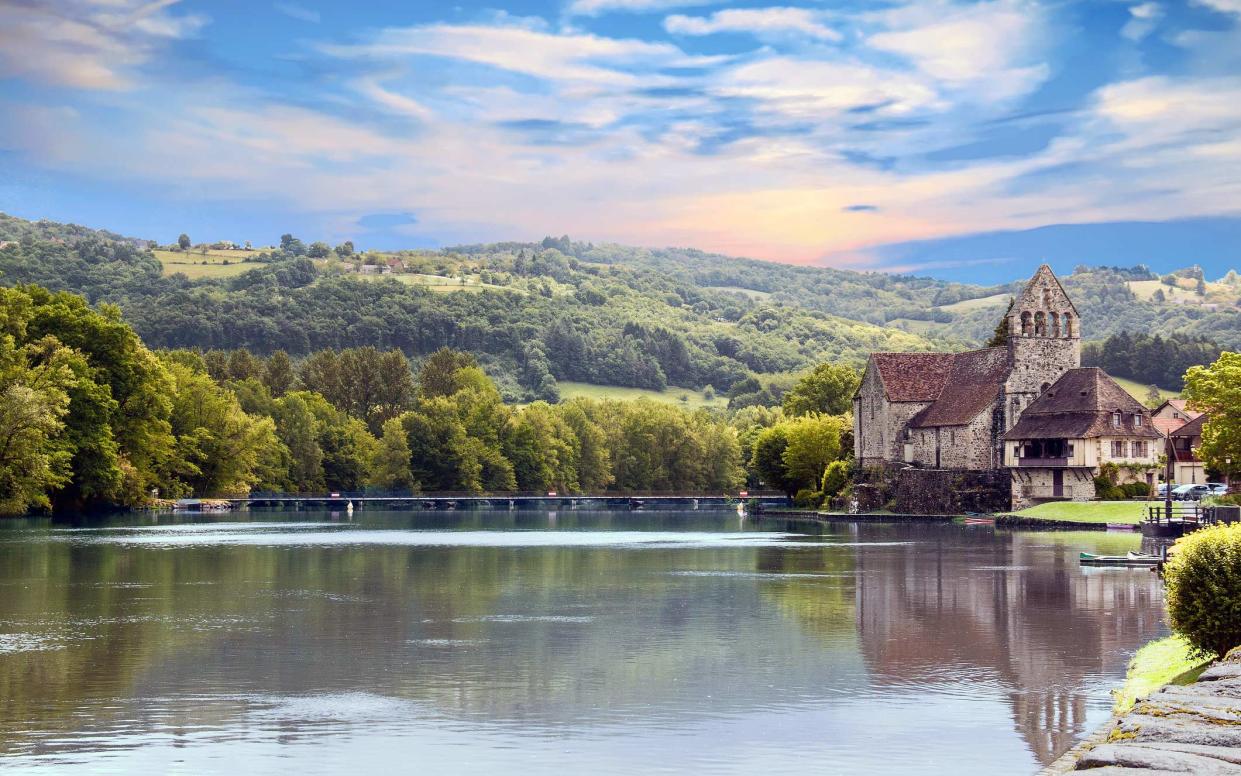'I welcome a quarantine that will protect my French village from infected Britons'

When I heard that Boris Johnson had introduced a two-week quarantine period for those returning from France, I was pleased. When Macron followed suit and reciprocated, I was overjoyed.
As a British immigrant who’s lived in a quaint French town in Limousin for a decade, I usually look forward to the summer. I enjoy spending time with my family at the sun-drenched lake-side beaches, absorbing the atmosphere at the day markets or buying homemade ice-cream from the local patisserie.
In particular, I look forward to the days in July and August when tourism swells the population and my sometimes trop tranquille town explodes with welcome life and chatter and colour.
But not this year.
Ever since lockdown in March, my family and I have revelled in our rural isolation. There were barely any local cases of the coronavirus, and (to date) none at all in my hometown where Covid could have ravaged the disproportionate elderly population and swept through the old people’s home.
Despite our lack of cases, when lockdown officially ended many locals stayed in self-enforced isolation, preferring to take it slowly and dip our toes back into the pool of normal life in our own time.
In June, my husband and I finally began to take our brood of five out to local parks. We’d go early, often finding we had the place to ourselves. We’d lather on the hand-gel. We’d keep our distance from others and be home by 11am.
And it felt good to be able to watch my children enjoy aspects of their old life and be fairly confident they were safe. Call me selfish, but I wanted to keep it that way.
Then came July, when campervans wider than the high street allowed would force cars to draw up on the pavement to let them through. And tourists, far from being the usual welcome sight, reignited feelings of vulnerability in local hearts.
Beaches began to fill up with bodies, the town centre no longer felt safe. Tourists – many of them British - would walk into the local supermarket and ignore the signs telling them to gel their hands beforehand. The casual attitude caused by a combination of sun and holiday spirit meant that some became sloppy with their hygiene. And it was catching.
As time went on, even our tiny trips out began to feel more precarious. There were rumours of an outbreak in a nearby village; our area – classed safe and ‘green’ on France’s coronavirus map – became amber. Tourist areas tended to fare the worst.
My family retreated to our home – and invested in a temporary above-ground swimming pool.
During August, we gradually opened up our world in a different way. The kids’ friends came over – one at a time, and only those we felt were relatively ‘safe.’ It was lovely to watch the children bond, and my son’s best friend rush into his arms for a cuddle on sight.
My extended family live in the UK and I haven’t seen them since October 2018. I’d planned a big holiday this May, but despite longing to see my parents and siblings, I decided to hold off to minimise risk to ourselves and others.
But talking to friends made me realise that not everyone shares this sentiment – local Britons on online forums talked of trips to Blighty-based relatives at the month’s end. They saw the risk as theirs to take, but failed to realise that their children would then return and mix with local kids in September at a time when they might unknowingly be harbouring corona.
Had I worked so hard to keep my kids safe only to expose them to germs they could have more happily acquired by getting a longed-for cuddle from gran?
I began to resent the campervans, and the cars with GB stickers. I saw the infection rate wobble in the UK and wished that someone would do something about it. I grinned benignly when I heard of people’s travel plans, but seethed inside.
I’m sorry for those who’ve had to cut holidays short. I have nothing but sympathy for those whose longed-for excursions have been put on hold. I know, too, that tourism is suffering. Friends who run B&Bs and campsites will feel the blow. Restaurants, cafes – in fact, anyone who relies on trade from the UK – might well be upset by the news.
In short, I know that my views on the quarantine measures are selfish.
But I can’t help but breathe a sigh of relief.


